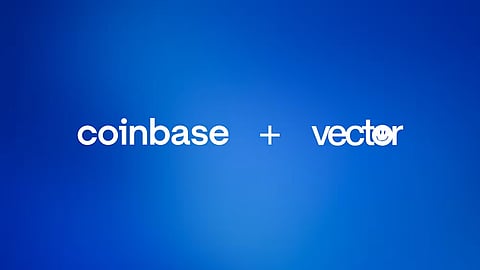

Coinbase moved to deepen its Solana presence after announcing the acquisition of Vector. Fun, a Solana-based trading platform with technology built for high-velocity markets. The exchange revealed that Vector’s tools will support its broader plan to offer faster trading, wider asset access, and direct exposure to newly launched Solana tokens. Coinbase stated that the deal will close after all required conditions are met, and Vector’s team will join its product development pipeline.
Coinbase revealed that only Vector will join its ecosystem, while the Tensor Foundation and the Tensor NFT marketplace will remain independent. This step aligns with Coinbase’s model of acquiring successful apps and combining them under one brand to increase market reach. Vector’s systems will integrate directly into Coinbase’s consumer trading products to improve on-chain access.
The exchange noted that SOL remains a core market due to strong user activity and rapid token creation. It outlined its plan to position itself as a central venue for Solana assets through a DEX trading integration. This approach aims to support traders who seek instant access to newly issued tokens.
Vector grew quickly in early 2025, yet its volumes eased after peak usage. Even so, the platform is set to reach $1.93M in annualized fees while Solana’s broader trading volume surpasses $1T for 2025. Coinbase said Vector’s SOL-native team has the expertise to track new assets the moment they launch on-chain or through major launchpads.
The company described its larger vision as building an “everything exchange” that offers unified access to on-chain markets with faster and more global reach. It also said Vector’s infrastructure will help improve liquidity and speed as Solana activity expands.
Coinbase confirmed that the Tensor project remains outside the current agreement. The Tensor Foundation now plans to acquire and fully control the Tensor marketplace without Coinbase's involvement. This development creates two separate paths for Solana products: Vector entering Coinbase’s ecosystem, and Tensor continuing as a standalone operation.
Tensor’s independence allows the foundation to direct its marketplace without changes from the Vector transaction. This separation creates a clear line between Coinbase’s DEX plans and Tensor’s marketplace growth. It also preserves the structure of Solana-focused platforms during a period of rapid expansion.
The split enables Coinbase to focus only on Vector’s technology as it develops its on-chain trading layer. The foundation can advance its own marketplace strategy without structural overlap. This contrast shows how Solana projects are forming different routes within the same ecosystem.
Also Read: Coinbase Fights Bank Push to Halt Stablecoin Payment Rewards
Vector’s integration raises one central question: how quickly will Coinbase deploy Solana DEX features for everyday traders? Industry analysts will watch the rollout to measure speed, access, and compliance as Solana asset listings grow. They will also track how Coinbase manages risk during periods of meme-coin volatility.
The company said Vector’s systems will help deliver broader asset availability for users who want immediate access to new Solana tokens. As this integration progresses, market observers expect other exchanges to accelerate their own on-chain and mobile trading offerings. This shift may reshape user expectations for fast token discovery and direct on-chain execution.
The coming months will show how Coinbase implements its accelerated listing process. They will also reveal how the platform adapts Vector’s tools to serve traders who target high-velocity Solana markets.
Coinbase’s acquisition of Vector strengthens its plan to expand Solana trading and advance its DEX integration strategy. The move brings faster access to new Solana assets and deeper on-chain market reach. Traders can now watch how quickly Coinbase deploys these capabilities across its growing Solana ecosystem.
